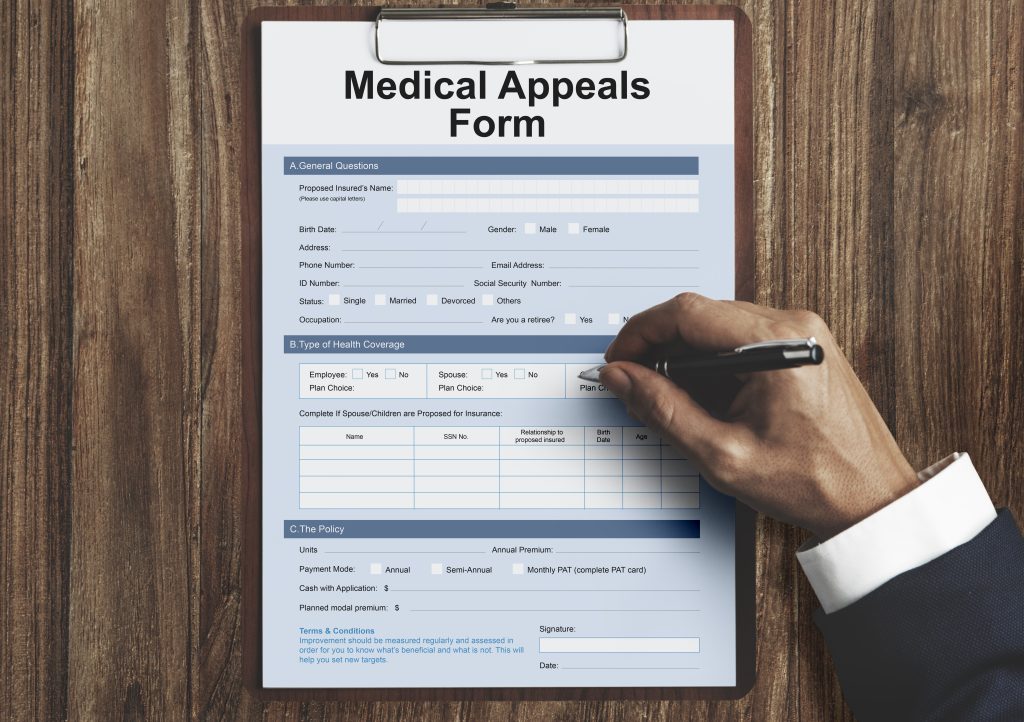Denied claims and appeals are common things in medical billing. Hence, healthcare providers and patients should understand such terms to contribute to fair reimbursement and better revenue management. So, what is an appeal in medical billing?
As medical billers, we’ve decided to simplify the appeals process. Our comprehensive guide will explain the basis of appeals in the healthcare industry and the different types.
We also have some helpful tips on how to write an appeal letter and what documentation should be included to overturn the initial insurance decision. Let’s start!
What Is an Appeal in Medical Billing?
With the 2010 health care reform, the Affordable Care Act, consumers have the right to appeal decisions of their insurance companies. So, what is an appeal in medical billing, and why is this right so important?
Appeals are formal requests for reviewing and reconsideration of an insurance company’s decision about a payment or benefit. When an individual disagrees with the company’s denied claim, they have the right to file an appeal and possibly change the outcome.
Besides in the medical billing process, decisions of the marketplace can also be appealed. Appeals are often filed for reviewing the following:
- Eligibility to buy a Marketplace plan
- Enrolment in a Marketplace plan
- Eligibility for lower costs due to low-income
- Eligibility for Medicaid or CHIP
Types of Appeals in Medical Billing
In medical billing, there are three common scenarios when an appeal can be filed. The first is when the insurance plan refuses to pay for the claim.
The other two situations are when the health insurance claims the patient isn’t eligible for coverage or ends their coverage. Considering another categorization, there are four types of insurance appeals:
- Pre-service/pre-authorization appeal – When a healthcare provider submits an appeal for a patient’s specific needs before the patient receives any actual treatment/care.
- Post-service appeal – When the insurance denies reimbursement or payment for treatments or procedures the patient has already done, making the patient responsible for the entire amount that was charged.
- Urgent care/expedited appeal – Filed for medical necessities when the appeal should be processed promptly.
- Marketplace plan appeal – Used for appealing decisions from both state and federal health insurance exchanges.

Source: shutterstock.com/ Photo Contributor: Rawpixel.com
Internal and external appeals
We distinguish internal and external appeals according to the appeal methods. These two types of appeals differ by the party where the request is filed.
For instance, an internal appeal is filed to the insurance company that denied the claim, while the external appeal is placed with a third independent review party. In urgent health situations, patients may also have the right to request an external review and file an internal appeal.
Where the patient will be obligated to file the appeal depends on their insurance company. Some insurance companies use the state HHS-Administered Federal External Review Process, while others might have contracts with an independent review organization.
If an external review or appeal is made, the insurance company no longer has the right to decide whether to cover the expenses. The external reviewer decides whether to cover the expenses in the claim.
Understanding the Appeals Process
It’s beneficial to familiarize yourself with the appeals process to understand what an appeal is in medical billing.
Discovering the reason for a denied claim
The first step in the appeals process is discovering why the insurance company denies paying for the medical claim. It’s best to call their insurance company immediately after they deny a service, payment, or coverage.
During this step, it is important to write down all information. This includes when and how the correspondence occurred, the names of the employees contacted, and what was discussed. So, common reasons for denied claims include:
- The services aren’t considered a medical necessity.
- Service inadequate to the healthcare setting or level of care.
- Experimental or investigational services.
- Not proven medical effectiveness.
- Issues with eligibility for the benefit.
- Submitted a claim after the timely filing limit.
- Submitting a claim to secondary insurance instead of primary.
Writing and submitting the appeal
Once the reason for denial is known, the next step is to prepare the appeal letter. There are two scenarios for writing an appeal letter: when the patients must write it on their own and when the healthcare provider offers assistance.
In our experience as medical billers, a potentially successful appeal should have the following documents as attachments:
- Letter of support from the healthcare provider
- Notes from the treating physician
- Test results
- Medical literature supporting the effectiveness of the treatments
- Personal narrative, including the necessity of the requested or gotten services
When the letter and all additional documentation are ready, the appeal should be submitted to the insurance company. Patients must be especially careful at this step because certain deadlines must be met.

Source: shutterstock.com/ Photo Contributor: Rawpixel.com
The three levels of appeals
In general, the healthcare system recognizes three levels of insurance appeals. The first level appeal or request for reconsideration can be filed by both patients and healthcare providers. Typically, first-level appeals focus on proving that the patient was rejected, although they meet the insurance guidelines.
The second level appeals request under the coverage guidelines. The medical directors of the insurance plans generally review this level of appeal. The person who will review and reach a verdict about the apples should be someone who wasn’t part of the claim decision.
Lastly, third-level appeals are independent external reviews. Compared to the first two levels, they are conducted by a third-party reviewer. The independent reviewers might choose to collaborate with a board-certified physician to strengthen their case.
Once the facility responsible for deciding on the appeal receives the appeal request, they are obligated to send out a Notice of Receipt of Clinical Appeal.
Types of appeal outcomes
How long an appeal takes depends on whether it is internal or external and the decision being appealed. For instance, internal appeals for treatments or services the patient should receive must be answered within 30 days.
On the other hand, internal appeals for services that have already been received should be completed within 60 days. As for external appeals, they can be either standard or expedited.
Both should be answered as soon as possible, but the deadline for a standard external review is 45 days, while for the expedited is 72 hours. The possible outcomes of an appeal to an insurance company are the following:
- Rejected appeal, confirming the original decision of the insurance plan.
- Partial approval: some aspects of the appeal are approved, while others are denied.
- Approved appeal, the appeal is successful and the denied coverage or payment will be covered.
Strategies for Effective Appeals
Different strategies can be utilized to increase the chances of having a positive appeal outcome. The first one is writing a persuasive appeal letter.
Hence, looking at sample appeal letters can be of significant help. As medical billers, we find appeal letters most effective when they are clear and concise, well-organized, written in a professional tone and reference all relevant guidelines and policies.
For a successful appeal, the organization or consumer preparing the appeal should be familiar with the contract terms. Understanding the insurance policy, including the coverage details, limitations and appeal procedures, might result in a more effective process.
Ultimately, building a close relationship with the employees deciding about the appeals, can be of significant importance. Identifying reimbursement patterns and appeal forms that work can lead to denial overturns. Also, this makes advocating for fair reimbursements easier.
Future Trends in Appeals Management
Numerous changes might be expected in the filing and management of appeals in the near future. First and foremost, the healthcare and insurance industry might agree on standardized appeal forms. The implementation and usage of standardized appeal forms will make the entire process easier for both patients and insurance companies.
Just like with claims management, it might be good to make the entire appeals filing and processing process electronic. Utilizing appeals case management software offers various advantages, such as accelerated appeal processing times, reduced costs, automated workflow and much more.
In addition, data analytics can be significantly helpful for appeals management. Combining data about claims, appeals and insurance decisions might reduce rejected appeals and increase patient satisfaction.

Source: shutterstock.com/ Photo Contributor: Rawpixel.com
Conclusion
So, what is an appeal in medical billing? Understanding the concept of appeal in medical billing, its types, and how it is done contributes to fair reimbursement and better patient care.
If you still find it difficult to navigate, you can hire a professional medical billing company, like CLICKVISION BPO, for medical billing services. We have a team of certified professional coders (CPCs) and billing specialists.

With a strong background in the marketing industry and healthcare leadership roles, Filip is responsible for CLICKVISIONBPO’s sales strategies and onboarding new clients. With a passion for sharing insights gained from his experience, he also shares valuable knowledge through industry related articles.
